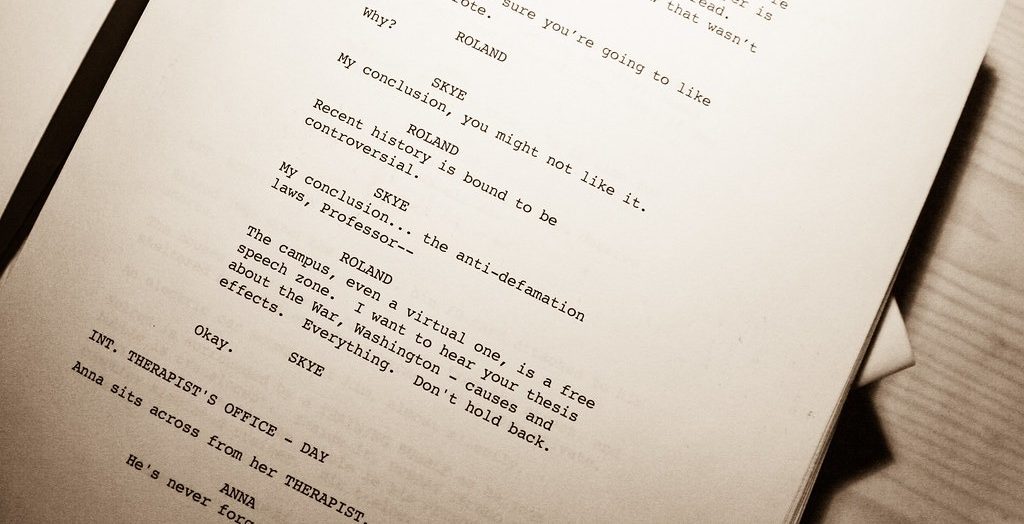From Screenplay to Screen
Pilots are undoubtably instrumental in shaping a television show. They have a clear function: to sell the show being represented to networks or distributors, including streaming services.
In the context of sitcoms, a pilot must help create a convincing world, an intriguing set of characters complete with witty dialogue, and most importantly, some heart. If green-lit, these pilots help to shape a multitude of hilarious shows that can charm and induce belly-aching laughter in equal measure.
From the viewers perspective, pilots take the form of series premieres. A brief window into a fictional universe. They balance necessary character-exposition with gripping cliffhangers and unresolved plot-lines.
To understand the anatomy of a pilot, studying them can prove effective. In this article, we explore screenplay drafts (which are freely available online for screenwriting enthusiasts) of the pilots of three famous US sitcoms, compare them to the final cut and attempt to understand the reasons for these differences.
Friends (“brevity is the soul of wit”):
The cleaner, final cut is just enough for sitcom fans
An undoubtedly popular show, Friends explores the day-to-day of six New Yorkers as they muddle through life in their twenties. While the version of the pilot (“The One Where Monica Gets a Roommate”) available on streaming is a slick 22 minutes, the draft screenplay has some 50 pages (as a rule of thumb, one page of a screenplay equals roughly one minute on screen).
The draft is titled, “Friends Like Us”—famously the working title for the show. The final cut is also a smidge wittier than the draft screenplay. For example, one of Chandler’s (Matthew Perry) famous one-liners, “and I just want a million dollars!” was initially “and I just want a lot of money”.
Lastly—perhaps one of the most considerable differences is the end tag. In the actual episode, we see the friends laughing together in ‘Central Perk’, their regular hangout spot. The big reveal here is that Rachel (Jennifer Aniston) has picked up a job there as a waitress.
In the screenplay, however, Ross’s ex-wife Carol announces her pregnancy, which in the actual show, is revealed and resolved within the second episode. The change is an excellent one. As written in the screenplay, the ending may have overwhelmed viewers and appeared as a clichéd cliffhanger. The final cut’s end tag shows the friends in their element, and furthers Rachel’s arc, from “clueless rich girl” to “self-sufficient woman”.
While it took me about half a season to get into Friends as a show, I enjoyed the pilot. The cleaner, final cut is just enough for sitcom fans. There are still a few too many scenes and plot-lines in the first episode, which should have been cut down to make longer and fewer scenes.
Community (characterisation):
The pilot feels generic, more concerned with establishing its characters than the shows signature style
The cult-classic Community, which explores the lives of seven misfits as they try and fix their lives by attending community college, had subtler deviations.
The final cut made some of the character more palatable. Jeff Winger (Joe McHale), comes off as even more crass and immoral in the draft, letting loose expletives that the show’s network, NBC, would never have allowed to air. In the final cut, albeit morally bankrupt, he is more personable and self-aware.
Changes such as this helped make the characters more sympathetic and likable for audiences. Although nuanced characters are important, exaggerated character flaws come off as overplayed and quickly become stale.
Although Community is one of my personal favourite shows, the pilot was not enough to get me hooked. Much of the show’s appeal lies behind its unpredictability and subversion of sitcom expectations. Examples of this include ‘Contemporary American Poultry’ (Season 1, episode 21), an homage to 20th century mafia epics (especially Goodfellas) and ‘Modern Warfare’ (episode 23) which turns a simple game of paintball into a pastiche for classic action films. In comparison to this, the pilot feels generic, more concerned with establishing its characters than the shows signature style. It shies away from Community’s uniqueness and in hindsight seems like a watered-down version of what is to come.
Arrested Development (a bit of heart)
Although wittiness is important, so is a sense of warmth
Michael Hurwitz’s Arrested Development explores the antics of the dysfunctional Bluth family. Michael Bluth (Jason Bateman) while trying to leave his extended family behind, finds himself forced to stay when his father (Jeffrey Tambor) is arrested for a series of white-collar crimes.
The show is known for its sharp humour, hilarious call-backs and flawed yet charming characters. While a considerable portion of the draft and the final cut are the same, the actual episode tends to prioritise heartfelt moments over witty lines and tense familial interactions.
Most notably, a jealousy filled outburst from Michael, who feels uncomfortable seeing his son (Michael Cera) opening up to his aunt (Portia de Rossi) is altered. In the final cut, Michael is happy to see his son bonding with his aunt and feels compelled to stay and help the family because of it.
The change is crucial. Although wittiness is important, so is a sense of warmth. Sitcoms are meant to be funny, but they can also provide comfort to viewers, who tune in every week for a break from reality. Providing a hearty balance of humour and love proves essential here, and allows viewers to root for characters, however broken they may seem.
Much of the appeal comes from the dysfunctional, yet precious bonds between the Bluth family members, something the pilot communicates effectively. Arrested Development also has a cult-classic status, but unlike Community, the pilot here feels much more authentic and unabashed in its uniqueness.
What these comparisons show is the way that small, seemingly insignificant changes made between drafts have had profound reverberations, cementing the foundations of some of television’s most memorable sitcoms. Although some may be imperfect, the pilots made these shows what they are.

Comments